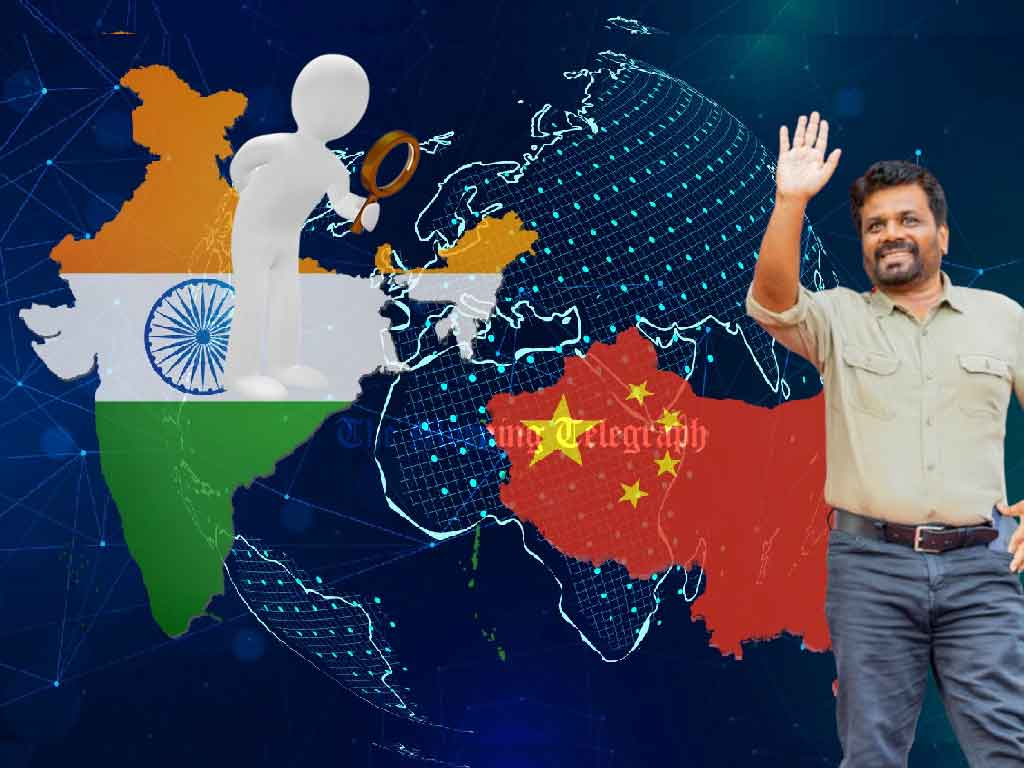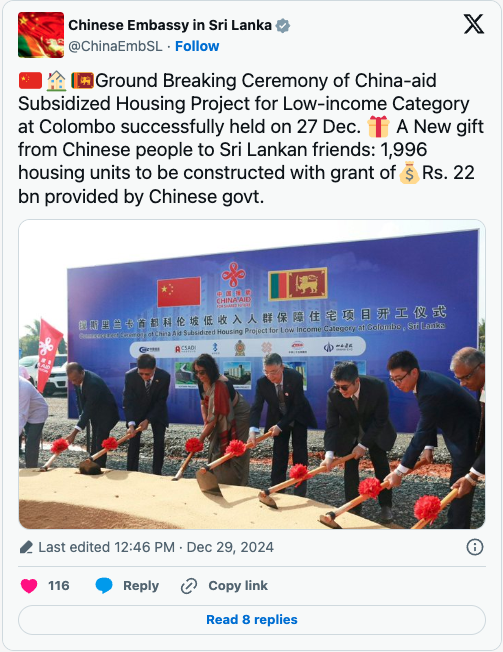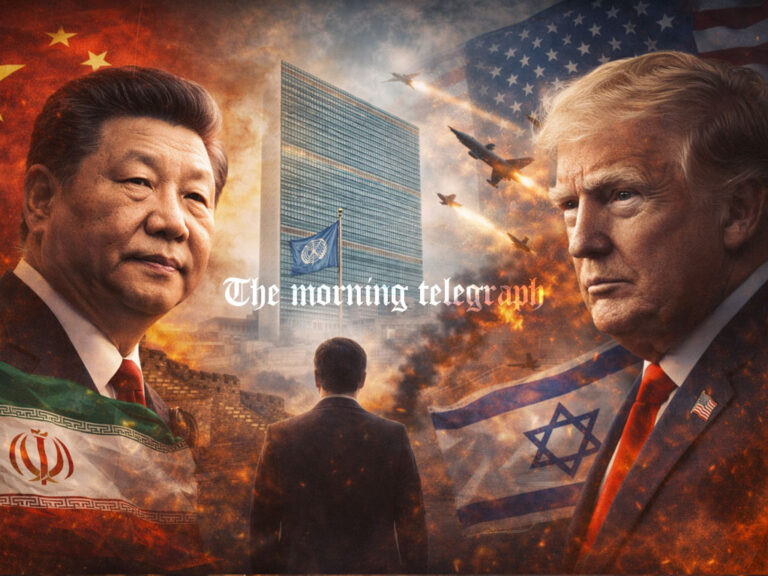
President Anura Kumara Dissanayake will depart for a three-day official visit to China tonight (January 13) at the invitation of Chinese President Xi Jinping. The visit, scheduled from January 14 to 17, marks a significant milestone in the long-standing relationship between the two nations and is expected to strengthen economic, trade, and investment ties. This trip comes at a crucial time, as Sri Lanka looks to rebuild its economy and deepen its partnerships with key global players.
According to the Sri Lankan Ministry of Foreign Affairs, President Dissanayake’s agenda includes high-level discussions with Chinese President Xi Jinping on a variety of areas of mutual interest. These discussions aim to solidify the strategic relationship between the two countries. In addition to meeting President Xi, the President will hold talks with Chinese Premier Li Qiang and Zhao Lijie, Chairman of the Standing Committee of the National People’s Congress.
During his visit, President Dissanayake will also undertake field visits focused on technological advancements, agricultural development, and poverty alleviation. These visits are expected to provide insights into China’s rapid progress in these sectors, with potential applications for Sri Lanka. High-level business meetings are also on the agenda, aimed at attracting Chinese investments in Sri Lanka’s key sectors, including infrastructure, manufacturing, and technology.
Leveraging Political and Economic Ties
International Relations Researcher and Consultant Dr. Hasith Kandaudahewa emphasized the significance of this visit, noting the strong relationship between the Chinese Communist Party and Sri Lanka’s political leadership. He stated, “This visit provides the President with an opportunity to strengthen bilateral ties by leveraging the goodwill between the two parties. Additionally, offering attractive investment opportunities to Chinese investors and involving Sri Lankan businessmen in this visit could pave the way for future collaborations.”
Dr. Kandaudahewa further highlighted that China has consistently been a key development partner for Sri Lanka, particularly in large-scale infrastructure projects such as the Hambantota Port and the Colombo Port City. The President’s visit is expected to reaffirm China’s commitment to these projects and explore new areas of cooperation under the Belt and Road Initiative.
Sri Lanka’s Commitment to the ‘One China Policy’
A significant aspect of this visit is Sri Lanka’s reaffirmation of its commitment to the ‘One China Policy.’ The Cabinet recently approved a paper reiterating that the government recognizes only the People’s Republic of China as the legitimate China, with Taiwan regarded as a province of China. This stance aligns with Sri Lanka’s long-standing foreign policy and is viewed as a key element in maintaining strong relations with Beijing.

Dr. Kandaudahewa noted, however, that this policy could have geopolitical implications, particularly in the context of India-China relations. “While the ‘One China Policy’ strengthens ties with China, it may raise concerns in India due to its proximity to Tibet and ongoing border disputes with China. Sri Lanka must navigate this diplomatic terrain carefully,” he said.
India’s Close Watch on Sri Lanka-China Relations
India is closely monitoring the outcomes of President Dissanayake’s visit to China, particularly in light of new agreements that are expected to be signed. Cabinet Spokesperson Minister Nalinda Jayatissa announced that several Memorandums of Understanding (MoUs) have been approved, covering areas such as tourism promotion, chicken meat exports, and emergency humanitarian assistance. Additionally, agreements between Sri Lanka’s Ministry of Health and Chinese institutions are also on the agenda.

Indian Prime Minister Narendra Modi is expected to visit Sri Lanka later this year in a bid to strengthen India-Sri Lanka relations and counterbalance China’s growing influence. Dr. Kandaudahewa explained that this visit is part of India’s broader strategy to shift Sri Lanka’s foreign policy toward the ‘India First’ approach. “India will pay close attention to agreements signed during this visit, particularly those related to the Hambantota Port and Colombo Port City,” he added.
Implications of a US-China Trade War
The global geopolitical landscape adds another layer of complexity to Sri Lanka’s foreign policy. Dr. Kandaudahewa warned that a potential trade war between China and the United States could have both positive and negative effects on Sri Lanka.
On one hand, Sri Lanka could benefit by positioning itself as an alternative supplier of raw materials to the US. On the other hand, Sri Lanka risks losing revenue from garment exports if the US imposes punitive tariffs in response to Sri Lanka’s growing ties with China. “While Chinese investments in Sri Lanka are crucial, the government must carefully manage its relations with both China and the US to avoid economic repercussions,” Dr. Kandaudahewa explained.
China’s Perspective on the Visit
At a press conference on January 10, Chinese Foreign Ministry Spokesperson Guo Jiakun emphasized the importance of President Dissanayake’s visit. “This is the first visit to China by President Anura Kumara Dissanayake since he assumed office, and it holds great significance for the development of China-Sri Lanka relations,” Guo said.

He further stated that the visit underscores the enduring friendship between the two nations, which has remained strong since the establishment of diplomatic ties in 1957. “China is ready to work with Sri Lanka to deepen political mutual trust, expand high-quality Belt and Road cooperation, and strengthen practical collaboration in various fields,” Guo added.
Strengthening a Strategic Partnership
The visit is expected to reaffirm the strong bilateral ties between Sri Lanka and China while opening new avenues for cooperation. As both nations navigate an increasingly complex global landscape, this visit highlights their shared commitment to mutual growth and prosperity. By fostering economic partnerships and exploring innovative solutions to common challenges, Sri Lanka aims to leverage its relationship with China to achieve long-term stability and growth.




